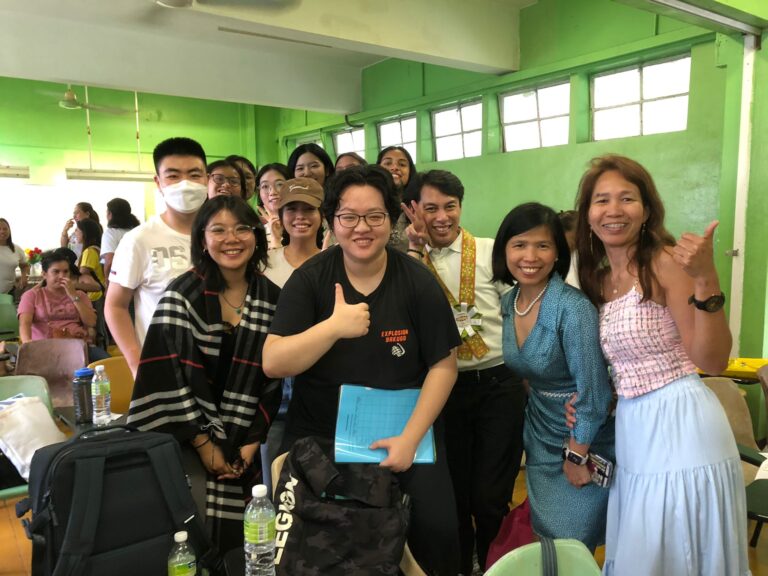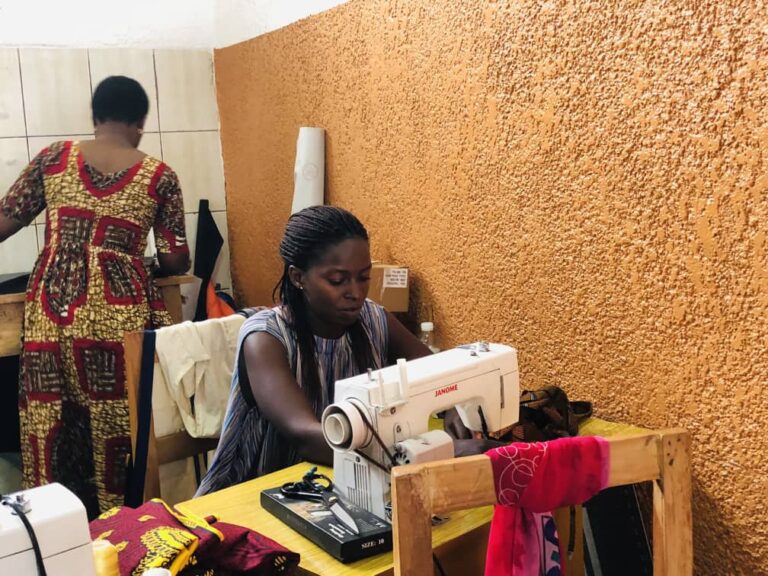Transdisciplinary Community Revitalisation Initiatives
Since 2021, I’ve coordinated multiple participatory action research projects as a pedagogic approach for connecting university students with distinct communities locally and internationally. These transdisciplinary learning experiences in the “thick of life” offer opportunities to dialogue with community stakeholders in changemaking, peacebuilding, and revitalisation.
So far, projects have included:
- Village community of Mui Wo (Hong Kong)
- Indigenous Atayal Community in Dong Ao, Yilan (Taiwan)
- Filipino Migrant Workers (Hong Kong)
- Myanmar Refugee Students in Mae Sot (Thailand/ Myanmar)
- Nyamirambo Women’s Centre (Rwanda)
Mui Wo Local Community
This project on community-led revitalisation with the village community in Mui Wo was initiated with Anna Iles from Flux Compass. The research field trip combined futures thinking, collective art workshops, public dialogue, forest bathing, camping, and local food and practices to understand ways for regeneration and building resilience for long-term sustainability that recognises the interdependence of economic, ecological and social health and wellbeing.
Students worked in teams to talk with local business owners and residents, create a “Bill of Health” diagnosis of the Mui Wo community, visual maps and artworks, identify grassroots initiatives, and produce a revitalisation handbook/ zine for the public.
Atayal Indigenous Community in Dong Ao
The project centres around fieldtrips to Yilan County to explore the rich cultural heritage of the Atayal tribe, one of Taiwan’s largest indigenous groups. Students learnt from Atayal ecological practices, talks with teachers and students at the experimental elementary school, interweaving traditional knowledge into modern education, and engaged with tribe elders, master craftsman, and indigenous youth. Activities included traditional cooking and weaving, archery, night hunting, oral traditions, craftsmanship, and sustainable architectural practices.
Artefacts of the research included short documentaries on Atayal culture and the region, making contributions to public knowledge of indigenous culture on Wikipedia, and revitalisation plans for the community.
Community Partners: Yaya Chen, Dong Ao Elementary School, and the Dong Ao Atayal Community
Hong Kong Filipino Migrant Workers
Students participated in a project engaging across migrant worker community spaces in Hong Kong, joining in their activities. The resarch project involved interviewing the workers to understand their homelife, specifically their motivations, identities, and aspirations, together with their experiences of discrimination, prejudice, and displacement living in Hong Kong. It explored how their experiences of collectivism, advocacy, and education influenced their responses.
Community Partners: Resolve Foundation, Social Justice for Migrant Workers, Migrants Pride Hong Kong, Gabriela Hong Kong, FilGuys Hong Kong

Myanmar Refugee Students in Mae Sot
The idea for this project emerged through a conversation with Patrick Desloge (formerly Senior Lecturer at HKU/ Salween Learning Journeys), taking undergraduates to the town of Mae Sot at the Thai-Myanmar border where many of the refugee camps are located. Students interviewed NGO workers and teachers, and interacted and taught digital advocacy skills to refugee students displaced by the ongoing civil war.
Hong Kong students taught the refugee students digital literacy and podcasting skills and formed friendships. The initial project resulted in several student-initiated trips to renovate the refugee schools and teach design thinking.
Nyamirambo Women's Centre
Hong Kong students collaborated with Rwandan IT students Davis College to create digital marketing and promotional solutions for a non-profit organisation in Rwanda supporting women affected by domestic violence and discrimination.
Community Partners: Davis College Rwanda, Nyamirambo Women’s Center
